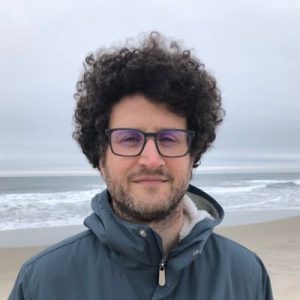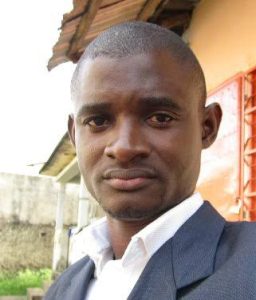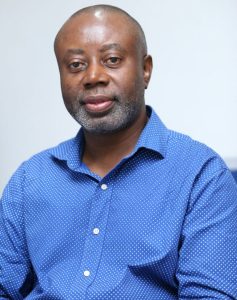Using a three-dimensional holistic design to equip Nigerian Investigative Journalists on Financial Investigation Techniques and Whistleblowing, PPLAAF in collaboration with AFRICMIL and HEDA held an intensive training from December 2nd to December 4th, 2024 in Lagos, Nigeria.
Journalists and Whistleblowers stay integral to creating deep enlightenments, upholding justice, democracy, accountability and the sensitization of the communities they serve in entirety. However, maintaining a high level of journalistic integrity does not go without dozens of risks involved, especially in the increasingly corrupt continent we live in.
We Can Only Go As Far As We Know
In an ever-evolving world, gaining access to the right knowledge and skill set as journalists not only builds confidence but enhances productivity, improves job quality, which in turn impacts the overall prosperity of the people. Where knowledge is power and the new currency, empowering journalists and whistleblowers has become a nonnegotiable practice of ‘simply informing the informants’ and ‘nurturing the nurturers’ of our society.
The Three-dimensional Holistic Design
It is on this premise that the Platform to Protect Whistleblowers in Africa (PPLAAF), in collaboration with the African Centre for Media and Information Literacy (AFRICMIL) and the Human and Environmental Development Agenda (HEDA Resources Centre) organized a three-day intensive training, which doubled with its three-dimensional holistic approach that included a developing framework, deep dives into investigation and practicals on the new skillset earned.
Developing Frameworks
Leading the first segment as a facilitator was Jimmy Kande, the West Africa and Francophone Director, PPLAAF who gave a distinct overview of who a whistleblower is. Thereby creating clarity and a foundation for the rest of the training sessions.

“Only 11 Countries in Africa have laws protecting whistleblowers, and Nigeria is not one of them yet. Regardless, the problem in Africa is not just to have laws but to protect the law.
Most whistleblowers are victims of retaliation. In Africa, there is much corruption and this is what makes protecting whistleblowers important.”- Jimmy Kande
The session also included risks faced by whistleblowers best practices on how to protect whistleblowers, especially as there is a limit to how much help a journalist can give to the whistleblower in terms of financial backing, security and legal protection.
The next framework discussed was led by John Dell’ Osso, Director of Investigations, PPLAAF who broke down the concept of corruption into “sizable and digestible bits” using relatable examples and real-life scenarios. At the end, ‘power’ ‘abuse’ and ‘gain’ we’re extensively discussed as the major makeups of corruption.

“Power often means a ‘Public Function.’ Abuse involves the type of behavior and Gain is anything of value.”- John Dell’ Osso
Clear distinctions were also made between petty corruption and grand corruption, with more focus placed on the latter as its consequences are more severe on the greater majority of vulnerable citizens.
Three common types of corruption were also extensively discussed, including bribery, embezzlement and nepotism.
After which ‘PEP (Politically Exposed Person), money-laundering, the international financial system and shell and shelf companies were broken down into tiny understandable bits for participants of the training.
Finally on this power packed session, a detailed and explanatory training was made on ‘making use of open information’ with insights on ‘surface web’ ‘deep web’ and ‘dark web.’
“On Investigating Companies, every case is different, but there is an easy initial approach which begins with —who, what, when, where.”
-John Dell’ Osso
Moving from the session on Investigating Companies was another deep-dive on Investigating People by Christian Locka, a multiple award-winning journalist and founder of The Museba Project. This birthed yet another exploration of ‘Key Open Information Sources’ which includes: public expenditure, corporate registries, official gazettes and more. This session concluded on highlights on how to secure confidential documents especially online, which is the new normal of this digital age.

“The best thing to do is to find open information sources and in all you do, always stay professional.” – Christian Locka
The final phase of the training by Dr Chido Onumah, Coordinator, African Centre for Media & Information Literacy was on ‘Assessing the Impact of Media in Promoting Whistle-Blowing As An Anti-Corruption and Good Governance Tool in Nigeria.” This session began with highlights of real life issues on corruption in Nigeria, from time past, till this present day making it double as a moment of reflection, learning, unlearning and relearning.
“Corruption in Nigeria is a major impediment to the country’s development, erodes industrial capacity and fuels economic retrogression.”— Dr Chido Onumah

This reveals how the interconnection between corruption, the overall growth and development of the country and part the media has to play in promoting whilst blowers, ensuring the sensitization of the people and uncovering the needed information for sustainability of real time progress.
In all, beyond a time of learning and multiple revelations of deep truth beyond the surface, the entirety of the training sessions is one that embodied warmth, spurred important discussions, quality connections and ignited the fire to keep the impact of Journalism and Whistleblowing burning beyond all odds.